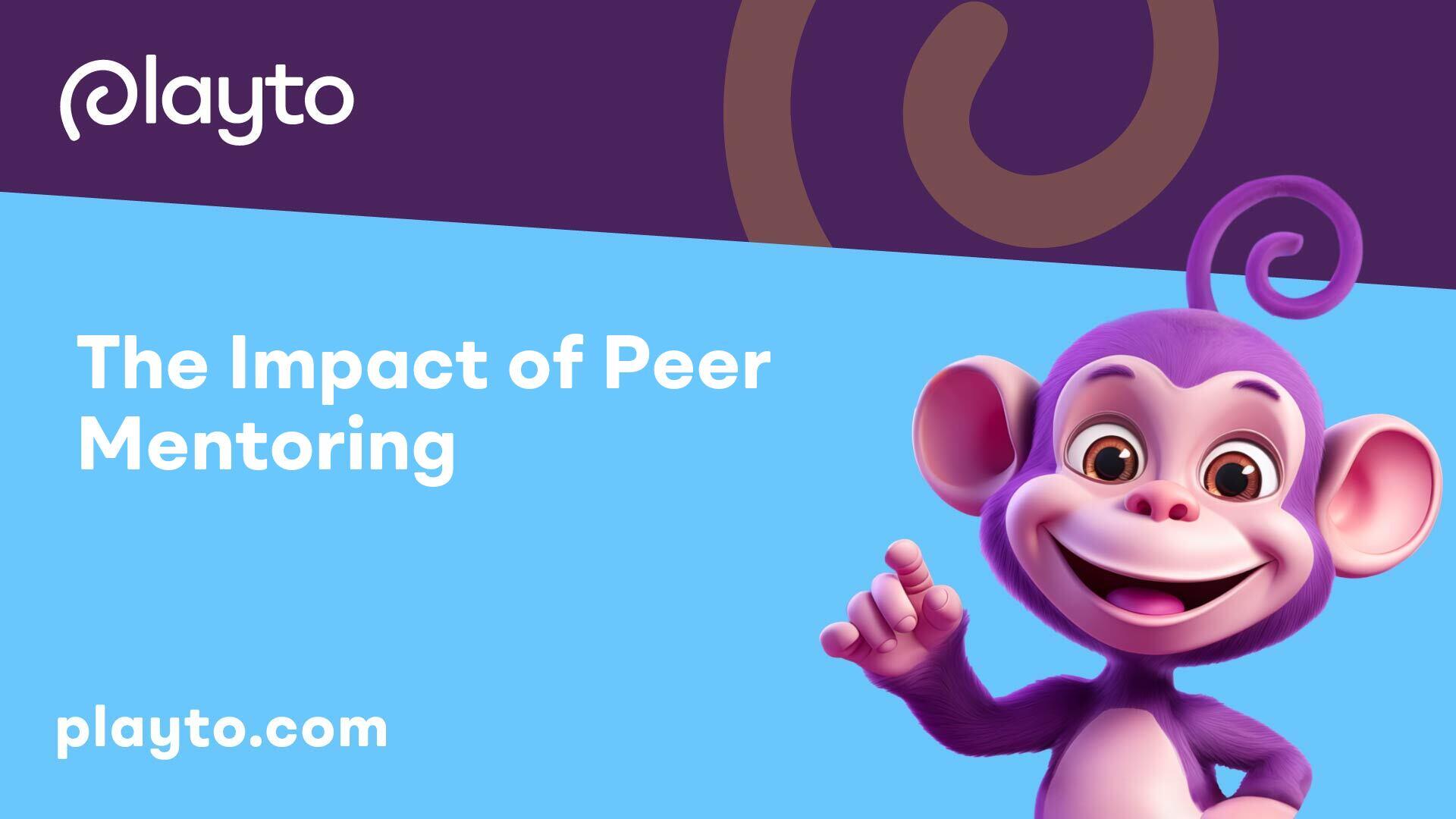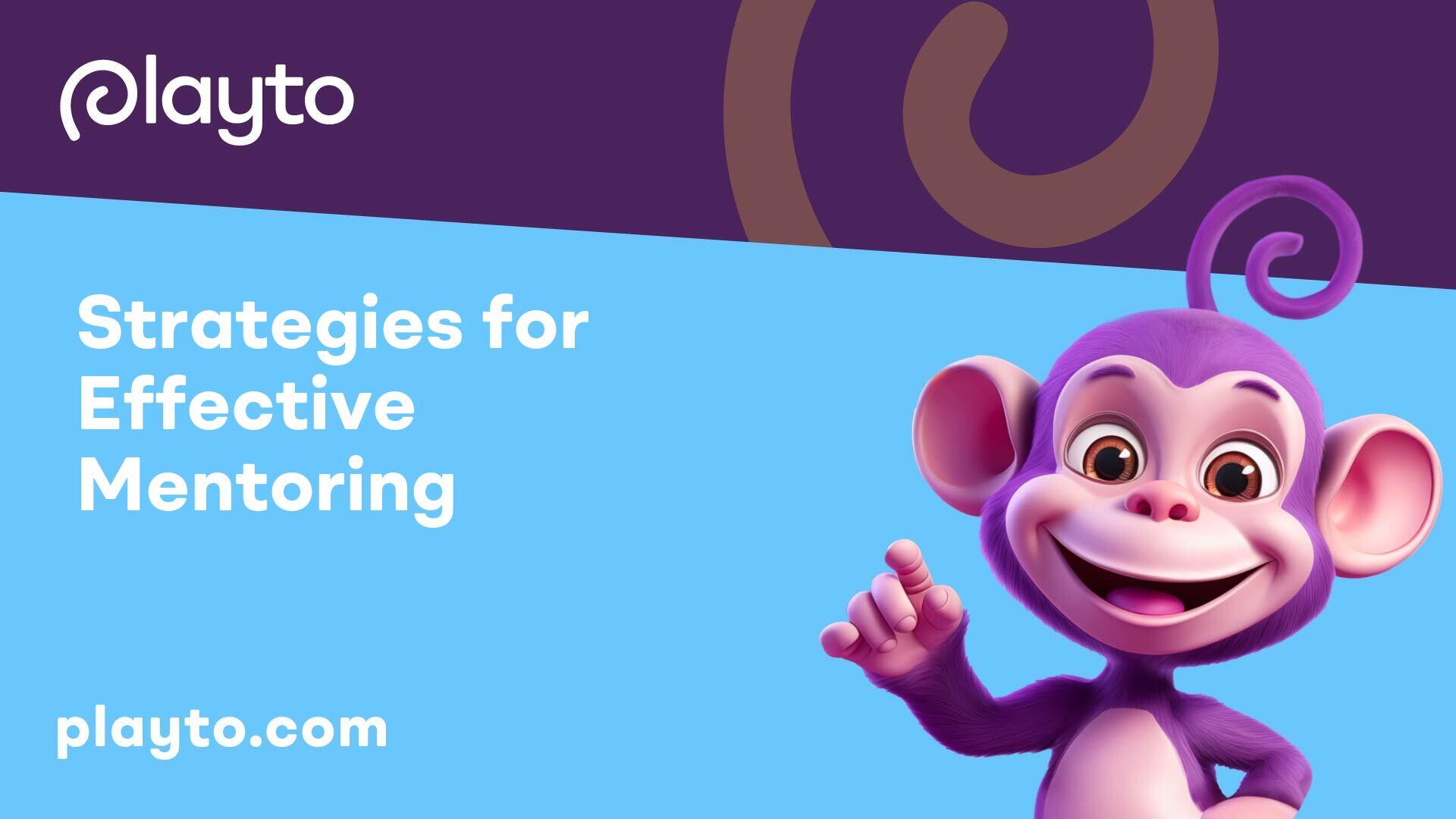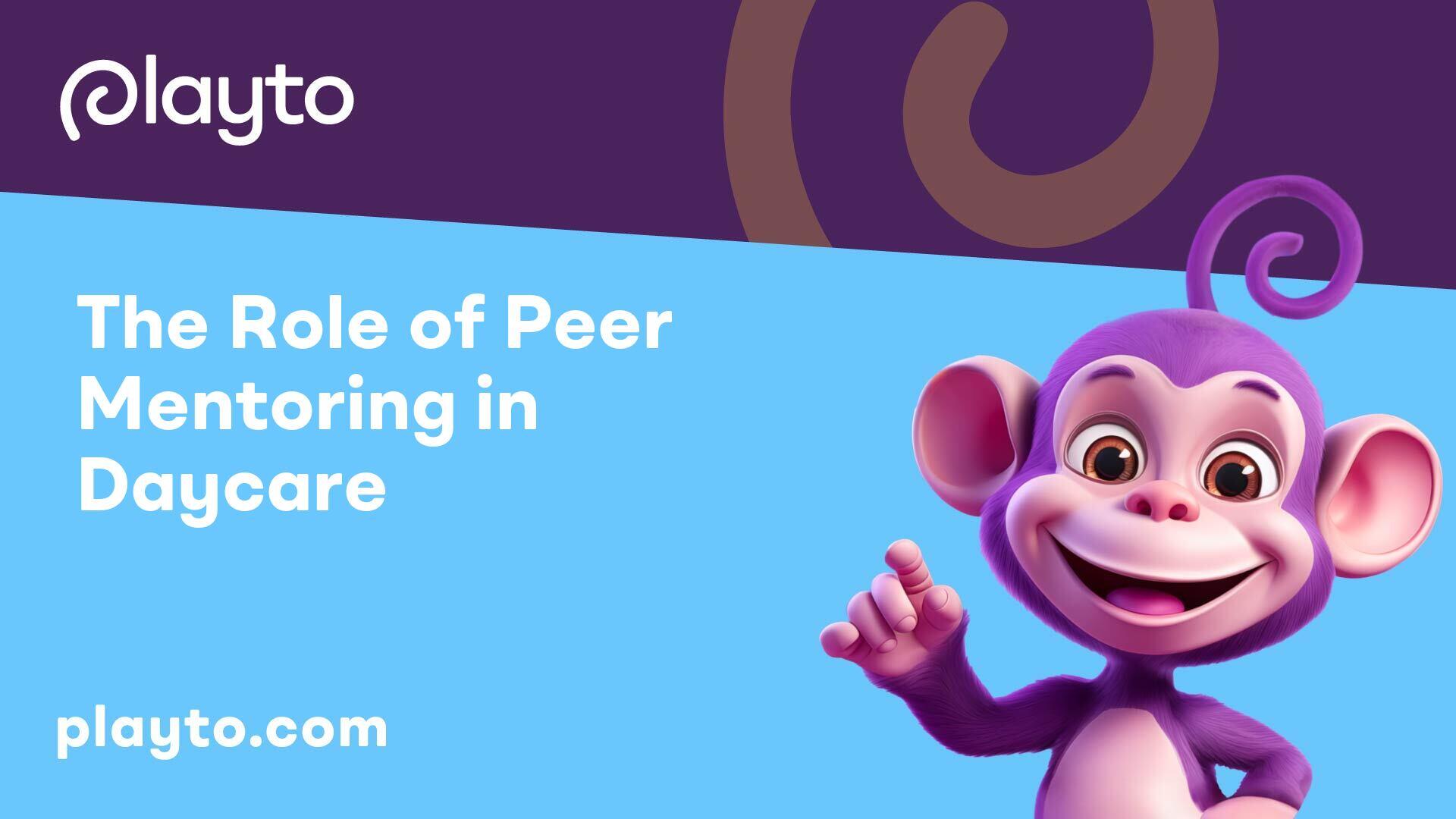
The Impact of Peer Mentoring
Peer mentoring plays a significant role in enhancing the learning and development experiences of children in daycare settings. By fostering supportive relationships between peers, mentoring programs have the potential to positively impact various aspects of a child's growth. Let's explore the concept of peer mentoring and the benefits it offers within daycare environments.
Understanding Peer Mentoring
Peer mentoring in daycare involves an enriching relationship where children learn from and support each other in their social, emotional, and academic journeys. This form of mentoring provides a platform for children to engage collaboratively, share knowledge, and develop essential skills under the guidance of their peers.
Peer mentoring programs facilitate a nurturing environment where children can receive personalized support for academic growth, build confidence, and cultivate social-emotional skills. Through positive interactions and shared experiences, children in daycare can boost their self-esteem, communication abilities, and problem-solving skills, laying a strong foundation for future success.
Benefits of Peer Mentoring
The advantages of peer mentoring in daycare are extensive, encompassing academic, social-emotional, and personal development benefits for participating children. Research studies, such as the one on the Big Brothers Big Sisters program, have highlighted the positive impact of peer mentoring on academic performance.
Mentored children tend to exhibit improved grades, better attendance, and increased engagement in classroom activities. They are more likely to excel in subjects like science, communication, and overall academic achievement. Moreover, peer mentoring has been linked to enhancements in social-emotional development, as it fosters positive perceptions of parental relationships, boosts self-esteem, and encourages aspirations for higher education.
Positive mentoring relationships within daycare settings can significantly influence children's overall well-being, leading to improved self-worth, academic competence, and decreased risks of engaging in negative behaviors such as substance use. By promoting engagement, positive peer interactions, and emotional support, peer mentoring programs create a conducive environment for children to thrive academically and socially.
Incorporating peer mentoring initiatives within daycare curriculum can lead to holistic growth and well-rounded development for children, paving the way for a brighter future filled with learning, connection, and success.

Challenges in Peer Mentoring
In the realm of daycare and early childhood development, peer mentoring plays a pivotal role in fostering growth and support among children. However, mentors in peer mentoring relationships encounter various challenges that can impact the effectiveness of the program. Understanding these limitations and learning how to overcome them is essential for the success of the mentorship process.
Limitations for Mentors
Mentors engaged in youth mentoring relationships often face challenges such as unfulfilled expectations, inadequate agency support, and deficient relationship skills, as highlighted by Spencer in 2007. These limitations can hinder the ability of mentors to establish meaningful connections with their mentees and provide the necessary guidance and support.
Mentors may also struggle with setting clear expectations and boundaries in their relationships. Without a clear understanding of the challenges and rewards involved in mentoring, mentors may find it challenging to navigate the complexities of the mentoring dynamic. Providing mentors with comprehensive information on what to expect can help sustain their involvement and commitment to the mentorship process, as noted in a survey conducted by MENTOR (2006).
Overcoming Mentorship Challenges
To address the challenges faced by mentors, it is crucial to provide them with the necessary training and support. Training programs can equip mentors with the knowledge, skills, and resources needed to navigate complex mentorship dynamics and effectively support their mentees. Spencer (2007) emphasized the importance of training and support for mentors in overcoming the challenges they encounter.
Additionally, clear communication about appropriately ending mentoring relationships from the outset can help mitigate negative effects and reduce the likelihood of relationship abandonment. By setting expectations early on and providing guidelines for concluding the mentorship in a respectful and constructive manner, mentors can create a more positive and meaningful experience for both themselves and their mentees.
Moreover, mentor characteristics play a significant role in the success of mentoring relationships. Mentors with strong self-efficacy and prior experience working with young people tend to have longer and more effective relationships, especially with high-risk mentees. Programs that offer high-quality supervision and support can further enhance the outcomes for high-risk mentees, as highlighted in the study on youth mentoring programs.
By acknowledging and addressing the limitations faced by mentors in peer mentoring relationships, daycare programs can enhance the quality and impact of their mentorship initiatives, ultimately benefiting the social-emotional development and academic success of the children involved.

Strategies for Effective Mentoring
To ensure successful peer mentoring relationships in daycare settings, several strategies can be implemented to enhance the overall effectiveness of the mentoring process. These strategies encompass establishing clear expectations, providing proper training and support for mentors, and knowing how to appropriately close mentoring relationships.
Clear Expectations
As highlighted by a survey conducted by MENTOR in 2005 (Source), one of the crucial elements for sustained involvement in mentoring relationships is setting clear expectations. Establishing clear guidelines and descriptions of the challenges and rewards involved in mentoring can help mentors and mentees understand their roles and responsibilities better. By providing transparency from the beginning, both parties can align their goals and maintain a strong foundation for the mentoring relationship.
Training and Support
Mentors often face challenges in their roles, ranging from unfulfilled expectations to deficient relationship skills. To address these challenges effectively, mentors should receive comprehensive training and ongoing support. By equipping mentors with the necessary knowledge and resources, they can overcome obstacles and foster meaningful connections with their mentees. Training programs should cover communication skills, effective mentoring techniques, and strategies for building rapport with children in daycare settings.
Closing Relationships
Another critical aspect of effective peer mentoring is knowing how to properly close mentoring relationships. Research by Spencer in 2007 (Source) suggests that offering clear information about the closure process from the onset of the relationship can mitigate negative effects and reduce the likelihood of relationship abandonment. Mentors should guide mentees through the closure process, emphasizing the growth and accomplishments achieved during the mentoring journey. By approaching the conclusion of the relationship thoughtfully and positively, both parties can part ways with a sense of fulfillment and appreciation for the experience.
By implementing these strategies for effective mentoring in daycare settings, mentors can establish meaningful connections with their mentees, nurture professional growth, and create a supportive environment for learning and development. Additionally, effective mentoring practices can lead to enhanced staff performance and continuous development, creating a positive impact on the overall daycare environment.
Peer Mentoring in Early Childhood
In the realm of daycare, peer mentoring plays a significant role in nurturing the growth and development of both children and staff members. Understanding the dynamics between coaching and mentoring, as well as their impact on staff performance enhancement, is essential for creating a supportive environment.
Coaching vs. Mentoring
The distinction between coaching and mentoring lies in their approaches to supporting individuals. While coaching focuses on skill development and performance improvement, mentoring delves deeper into guiding personal and professional growth. Effective coaching identifies specific skills that staff members need to enhance, designs personalized development paths, and ensures continuous progress. On the other hand, mentoring prevents employees from reaching plateaus by encouraging ongoing development and self-improvement.
Staff Performance Enhancement
Peer mentoring in daycare settings can lead to improved staff performance by fostering a sense of self-worth and confidence, promoting collaboration, maintaining consistent productivity, and accelerating leadership development within the organization. By encouraging problem-solving and being intentional in coaching and mentoring interactions, daycare providers can create and retain high-performing staff members, support their personal and professional development, enhance productivity, and cultivate leadership qualities.
Investing in coaching and mentoring programs not only benefits the individual staff members but also elevates the overall quality of care provided in daycare settings. By building strong connections between mentors and mentees, daycare professionals can create a supportive environment that nurtures growth, development, and continuous learning. To discover more strategies for enhancing early childhood development and staff performance, visit our article on the impact of positive reinforcement in daycare.
As we continue to explore the roles of coaching and mentoring in early childhood education, it becomes clear that these practices are integral to fostering a culture of learning, growth, and empowerment within daycare centers. By leveraging the power of peer mentoring, staff members can unlock their full potential, enhance their skills, and contribute positively to the well-being and development of the children under their care.
Academic Benefits of Mentoring
In the realm of daycare settings, peer mentoring plays a significant role in enhancing academic performance among children. Mentoring programs have shown compelling results in improving various aspects of academic achievement, including grades, attendance, and classroom engagement.
Improved Grades
Studies, such as the one conducted on the Big Brothers Big Sisters program in 1995, have highlighted the positive impact of mentoring on academic performance. Mentored youth tend to earn higher grades compared to their counterparts without mentors. The presence of a mentor provides students with valuable guidance, motivation, and support, which can directly contribute to improved grades and overall scholastic success.
When youth participate in school-based mentoring programs, they often exhibit higher quality class work and achieve better academically, particularly in subjects like science and written and oral communication. The guidance and encouragement offered by mentors help students excel academically and reach their full potential in various academic disciplines.
Attendance and Classroom Engagement
Another important academic benefit of mentoring in daycare environments is the positive impact on attendance and classroom engagement. Mentoring programs have been instrumental in reducing unexcused absences among students with mentors, as compared to those without mentoring support.
For instance, youth engaged in programs like the Across Ages mentoring program have shown a noticeable increase in the number of classes attended, surpassing those not involved in such programs. The presence of a mentor motivates students to actively participate in classroom activities, stay committed to their education, and attend school regularly.
Moreover, mentoring relationships established through school-based programs have been strongly associated with positive changes in youths' relationships with both parents and teachers. These improved relationships lead to enhanced self-esteem, better academic attitudes, increased prosocial behaviors, and reduced misconduct among students, with significant positive effects across various aspects of academic and social-emotional development.
With approximately 4.5 million children and adolescents benefiting from mentoring programs in schools across the U.S., the academic advantages of peer mentoring in daycare settings are increasingly recognized as a valuable tool for nurturing academic excellence and encouraging active participation in the learning process.
Social-Emotional Development
In the context of daycare, peer mentoring plays a pivotal role in nurturing social-emotional development among young children. This section highlights the significance of relationship building and the long-term effects of mentoring on the social-emotional well-being of children.
Relationship Building
Peer mentoring in daycare settings fosters the cultivation of meaningful relationships between children. Through interactions with peer mentors, children learn important social skills such as cooperation, communication, and empathy. These relationships not only enhance socialization but also provide a sense of belonging and support within the daycare environment.
Building positive relationships through peer mentoring creates a supportive network where children feel valued and accepted. This sense of belonging can boost self-esteem and confidence, laying a strong foundation for healthy social interactions both within the daycare setting and beyond.
Long-term Mentoring Effects
The effects of peer mentoring extend beyond immediate social interactions, influencing the long-term social-emotional development of children. Research indicates that mentoring relationships in school-based programs contribute to positive changes in youths' relationships with parents and teachers.
Close, healthy, and enduring relationships between mentors and mentees are crucial for the success of mentoring programs, with long-term mentoring relationships, lasting more than one year, proving to be particularly impactful. These sustained connections provide children with consistent support, guidance, and encouragement, which can significantly enhance their social-emotional skills and overall well-being.
Studies have shown that positive mentoring relationships lead to improvements in youth perceptions of parental relationships, contributing to enhanced self-worth, scholastic competence, and academic achievement. The lasting effects of peer mentoring on social-emotional development lay the groundwork for children to navigate future social interactions, academic challenges, and personal growth with confidence and resilience.
Youth Mentoring Programs
In the realm of daycare, youth mentoring programs play a vital role in enhancing child development and fostering positive relationships within educational settings. These programs offer a structured framework for mentorship and guidance, positively impacting both mentors and mentees.
Reach and Impact
School-based mentoring (SBM) programs have emerged as a prevalent formal approach to youth mentoring in the United States, surpassing traditional community-based mentoring (CBM) initiatives. These SBM programs cater to hundreds of thousands of vulnerable students across the country, providing them with guidance and support that extends beyond the classroom [3]. The reach of these programs highlights their effectiveness in enhancing child development and academic performance.
Youth mentoring programs have demonstrated a positive impact on school attendance rates. Students with mentors exhibit fewer unexcused absences compared to their peers without mentor support. This improvement in attendance underscores the importance of mentorship in promoting regular school engagement and creating a conducive learning environment.
Enhancing Child Development
Close, enduring, and supportive relationships between mentors and mentees are fundamental to the success of mentoring programs, particularly those that span over a year. These enduring relationships have been proven to enhance various aspects of child development. Positive mentoring relationships not only contribute to academic achievements and scholastic competence but also lead to improvements in self-esteem and reduced substance use among youths.
By fostering an environment of trust and guidance, youth mentoring programs create opportunities for children to develop essential life skills, improve their social interactions, and build self-confidence. The influence of such programs extends beyond academic achievements, impacting the overall well-being and emotional development of children in daycare settings.
Youth mentoring programs stand as pillars of support and guidance for children, offering them mentorship that extends beyond their immediate social circles. By investing in these programs and nurturing positive mentor-mentee relationships, daycare facilities can contribute significantly to the holistic development and growth of the children under their care.
Factors Influencing Mentoring Outcomes
When examining the effectiveness of peer mentoring in daycare, several factors play a crucial role in determining the success of such programs. In particular, the length of relationships between mentors and mentees and the characteristics of the mentors themselves significantly impact the outcomes of mentoring initiatives.
Length of Relationships
Research from youth.gov highlights the importance of close, healthy, and supportive relationships between mentors and mentees that endure for a substantial duration, typically exceeding one year. These prolonged relationships are fundamental to the positive outcomes of mentoring programs. Longer-lasting relationships have been shown to have more potent effects, particularly in cases involving high-risk youths.
According to The Promises and Pitfalls of Youth Mentoring Programs, matches that end prematurely, especially for high-risk individuals facing challenges like behavioral issues, poverty, or family conflicts, can have adverse effects. Therefore, fostering enduring relationships between mentors and mentees is essential for maximizing the benefits of mentoring in daycare settings.
Mentor Characteristics
The characteristics of mentors, as noted in NCBI, play a pivotal role in shaping the effectiveness of mentoring relationships. Mentors with strong self-efficacy and prior experience working with young individuals tend to establish longer and more impactful relationships, particularly with high-risk mentees. Programs that offer adequate supervision and support are associated with better outcomes for mentees facing significant challenges.
It is evident that the quality of mentoring programs and relationships significantly influences their impact on daycare settings. By prioritizing the establishment of enduring and supportive relationships between mentors and mentees and selecting mentors with the appropriate characteristics and experience, daycare facilities can enhance the positive outcomes of peer mentoring initiatives.
References
[1]: https://cisjax.org/the-impact-of-mentoring-programs-on-childrens-success/
[2]: https://youth.gov/youth-topics/mentoring/benefits-mentoring-young-people
[3]: https://www.ncbi.nlm.nih.gov/pmc/articles/PMC3593655/
[4]: https://www.s-r-a.org/index.php?option=com_dailyplanetblog&view=entry&category=applyingfindings&id=51:the-promises-and-pitfalls-of-youth-mentoring-programs
[5]: https://youth.gov/youth-topics/mentoring/challenges-and-lessons-learned-mentoring-relationships
[6]: https://mybrightwheel.com/blog/coaching-and-mentoring-in-early-childhood
